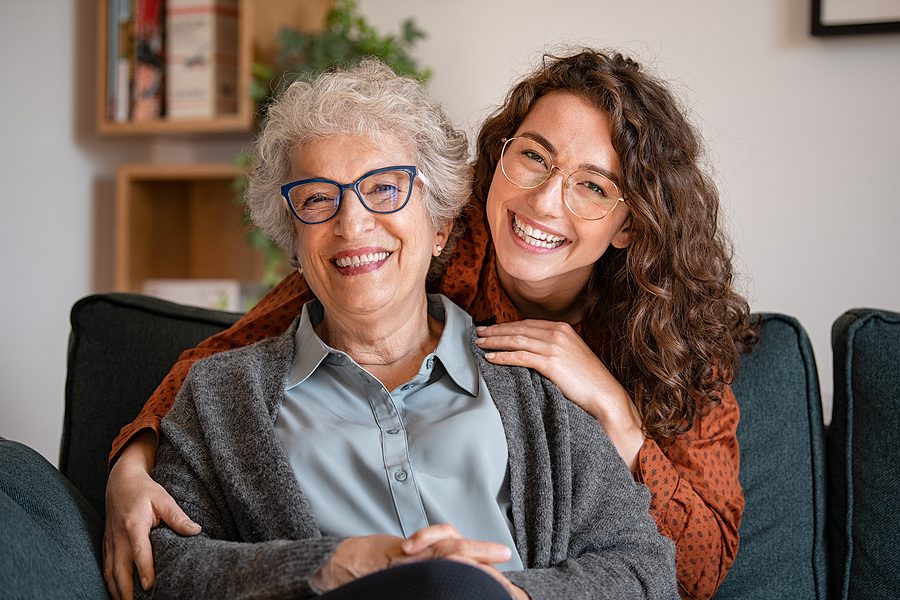It can be hard communicating with someone of an older generation. Hearing loss, changes in vernacular, and more can all pose potential problems. When talking with an elderly individual, there are a few things you can be mindful of that can make communication easier. This article will discuss tips for clear communication between you and your elderly loved ones.
Speak Clearly and Project
Projecting your voice is a good place to start when improving your communication skills. Almost a third of people will experience hearing loss after age 65. Speaking clearly, and even a little slow, will help your loved one be more readily able to understand you.
Communication and Outside Noises
It is important to be mindful of the environment around you. TV, radio, conversations from others, and even outside traffic can create distractions and overwhelm your loved one. Reducing additional noises, when possible, can help. Try lowering or pausing the TV during the conversation.
Eye Contact and Communication
Facial focus and eye contact are important to effectively communicate with most elderly people. Eye contact helps people focus on the conversation, and maintain that focus.
Being a Good Listener
Listening skills are important for effective communication with anyone. However, it can be especially vital in keeping a conversation with the elderly. Pauses in conversation can often be the result of thinking or processing. A good listener shouldn’t interrupt these pauses so that the elderly individual can complete their thought. Overall, this can be important when conversing with people living with cognitive impairments, such as dementia.
Reminiscing and Communication
Reminiscing and recalling memories can be helpful t the elderly. Memories promote a sense of belonging for many elderly individuals. Many older people will be able to recall memories or information from their past, even if their short-term is lacking.
Modern Lingo and Code-Switching
Vernacular is constantly evolving. New slang terms develop over time, and it is easy for older generations to get confused. Try to avoid more recent slang when talking with an elderly individual, as it may confuse them.
Code-switching is an important communication tool. Generally, code-switching refers to changing how your vocabulary and the way you speak changes based on your audience. Learning to communicate effectively with older generations often includes the reduction of current lingo and developing a more clear way of speaking.
Safe Harbor Healthcare Services does not provide medical, healthcare, or financial advice via articles. This material has been prepared for informational purposes only. It is not intended to provide, and should not be relied on for medical advice.
Safe Harbor Healthcare Services has been providing excellent home care on Staten Island since 1967. Our services help the elderly and disabled live safely and independently; while giving their families the peace of mind they need. For more information contact us by clicking here, or call (718)-979-6900.

